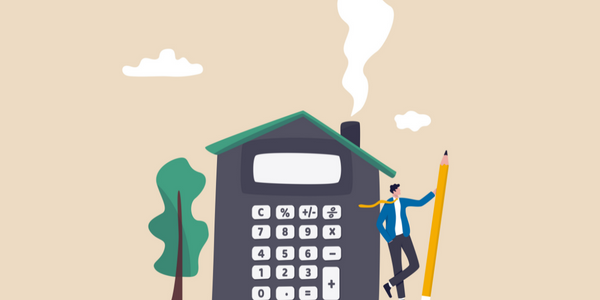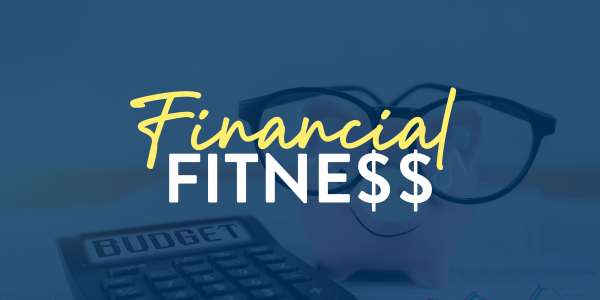
Owning your home provides safety, security, and stability when it comes to your living situation, especially if you have a fixed-rate mortgage. Knowing that your mortgage payment will never increase and a landlord will never ask you to move can do wonders for your psyche—and your sleep!
You know the one thing that can provide even more safety, security, and stability? Paying off your home loan early. The best part is you don’t have to write a massive six-figure check to do this. Making as little as one extra mortgage payment a year can yield big-time results, and savings, as you work towards paying down your principal.
Making extra mortgage payments can be done in a few ways.

One Extra Payment Per Year
If you make just one extra payment throughout the year, you could shorten your mortgage by a few years. Some borrowers save all year for this, choosing to remit the bonus payment at the end of the year. Others throw it in any time of year when they have some extra cash laying around from, say, a large commission, inheritance, bonus, investment sales, or whenever their savings allows. Be sure to tell your lender you want to apply the full amount to the principal to maximize the value of this extra payment.
Bi-weekly Mortgage Payments
Many people view this scenario like six of one, half a dozen of the other, but bi-weekly payments can have several benefits. First, it splits your mortgage payment in half. If you get paid twice a month, this can help reduce the financial burden in between paychecks by breaking up your mortgage payment as opposed to making a lump sum mortgage payment at the beginning of the month.
In addition, bi-weekly payments equate to you making one extra mortgage payment per year (13 instead of 12), which helps you pay down your mortgage faster. You’ll want to direct your lender to apply one of these payments to the principal balance each month. You want to also check with your lender to ensure that you won’t accrue any fees or penalties for switching your payments to bi-weekly.
Naturally, you can also refinance to a shorter-term mortgage to pay off your loan faster. For example, you can switch from a 30-year mortgage into a 15-year mortgage. Your monthly payment will be higher but you’ll pay off your home significantly sooner. If you can afford the shorter term, this could be extremely valuable in saving time and money. To review potential refinance options, click here to connect with an APM Loan Advisor.
Now that we know how we should be making extra mortgage payments, let’s focus on why it’s so beneficial.
Benefits of Making Extra Mortgage Payments
Save Tons in Interest
Making extra mortgage payments not only lets you pay off your home faster, but it also saves you a bundle in interest. That’s because each mortgage payment comes with interest tacked on. Making extra mortgage payments that pay down your principal lowers the number of standard payments (and thus, the amount of interest) you pay over time.
Paying down the principal—however you do it—has an undeniable impact on your wallet!
Build Equity Faster
Your home equity increases as your loan principal decreases, and this is a beautiful thing. Assuming home values remain steady or rise, more equity in your home increases the value of your investment. This can lead to a big payoff when it comes time to sell. Equity can also be used in the future should you want to renovate, update your home, or do other improvements to your home. This, of course, has the potential to further increase your home’s value.
In a way, making extra mortgage payments is like investing a little more into your home and into yourself. And those are investments we’re proud to make!
Eliminate PMI
There are many programs out there, especially for first-time homebuyers, that allow borrowers to put less than 20% down on a home. These programs can be a godsend to some and the only way to get into a home for others. While these programs can be very beneficial, they do come with an extra requirement: private mortgage insurance, or PMI. The fee associated with PMI varies by lender, and other factors like your loan-to-value (LTV) ratio, debt-to-income (DTI) ratio, and your credit score. Have abbreviation overload yet? Yeah, us too.
You can eliminate this whole alphabet soup by making extra mortgage payments that will push your loan amount down to 78% loan-to-value and your equity above 22%. That’s when PMI automatically falls off of your loan, saving you money every single month (assuming you have a conventional loan).
Pay Off Your Home Faster
We mentioned this before, but paying off your home faster is a major benefit that comes from making extra mortgage payments. As little as one extra payment a year can help you shave three to four years off your mortgage. This buys you peace of mind, and, without a mortgage payment, allows you to direct those funds anywhere you choose. College education, extended vacation, nice car, a second home? The world’s your oyster when you don’t have a mortgage payment!
Plus, all this built-up equity can act as a financial buffer as you can always dip into equity for home repairs or possibly as a lower-interest personal loan in the form of a cash-out refinance.
Clearly, there are lots of benefits to making extra mortgage payments. What you should ask yourself before getting started, however, is whether directing extra money to this cause is right for you. In many instances, it is. In others, it may be more strategic to put any extra cash toward paying down high-interest credit cards or other loans.
You should also make sure you have at least three to six months’ worth of savings on hand in case of emergencies. You never want to live hand to mouth because you’re making extra mortgage payments. Next comes your retirement account, which should be adequately funded before you turn your attention to paying off your home sooner.
If you’re full speed ahead on making extra mortgage payments after weighing these considerations, then go for it! APM is here whenever you’re ready to get started. Give us a call today.
Disclaimer: Information provided in article is for general consumer conventional loan purposes and not applicable to all borrowers. Consult a mortgage professional for further details. All mortgage loan qualifications and programs are subject to change without notice.








